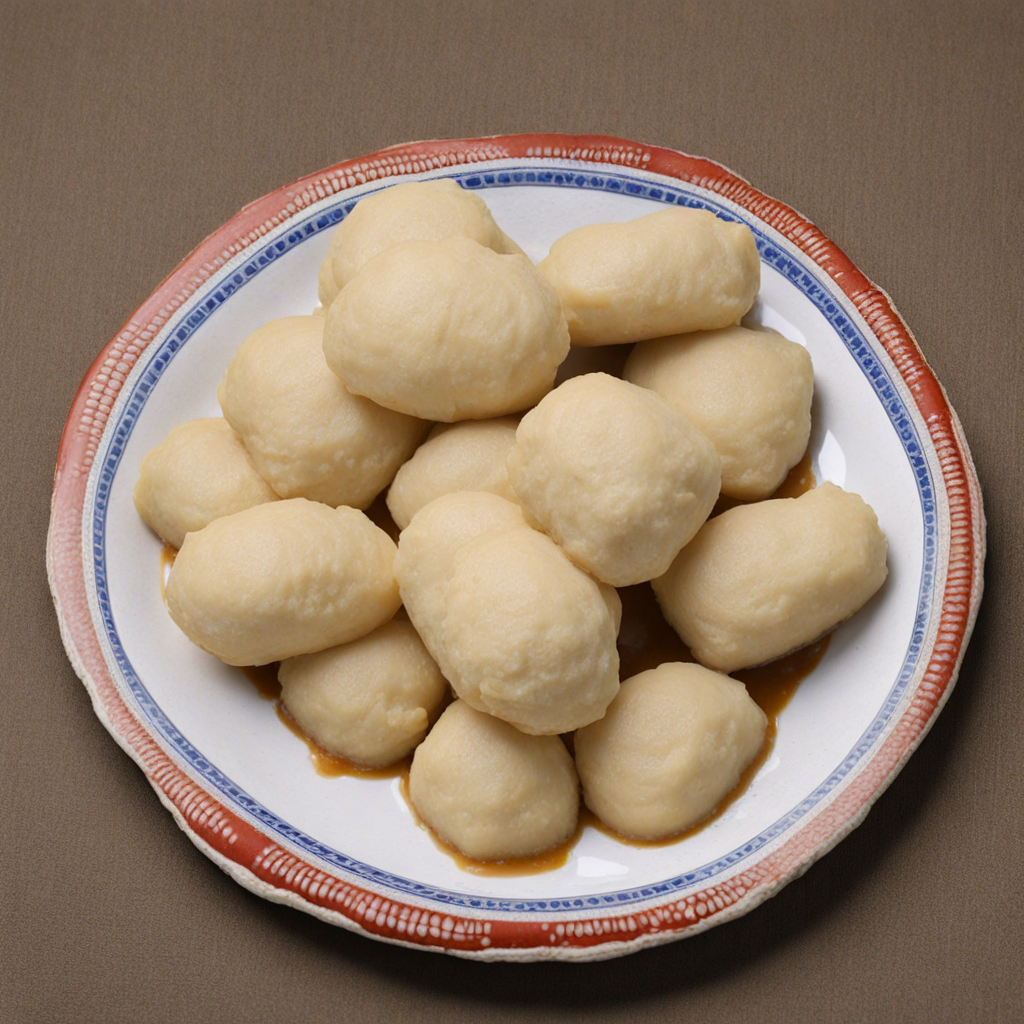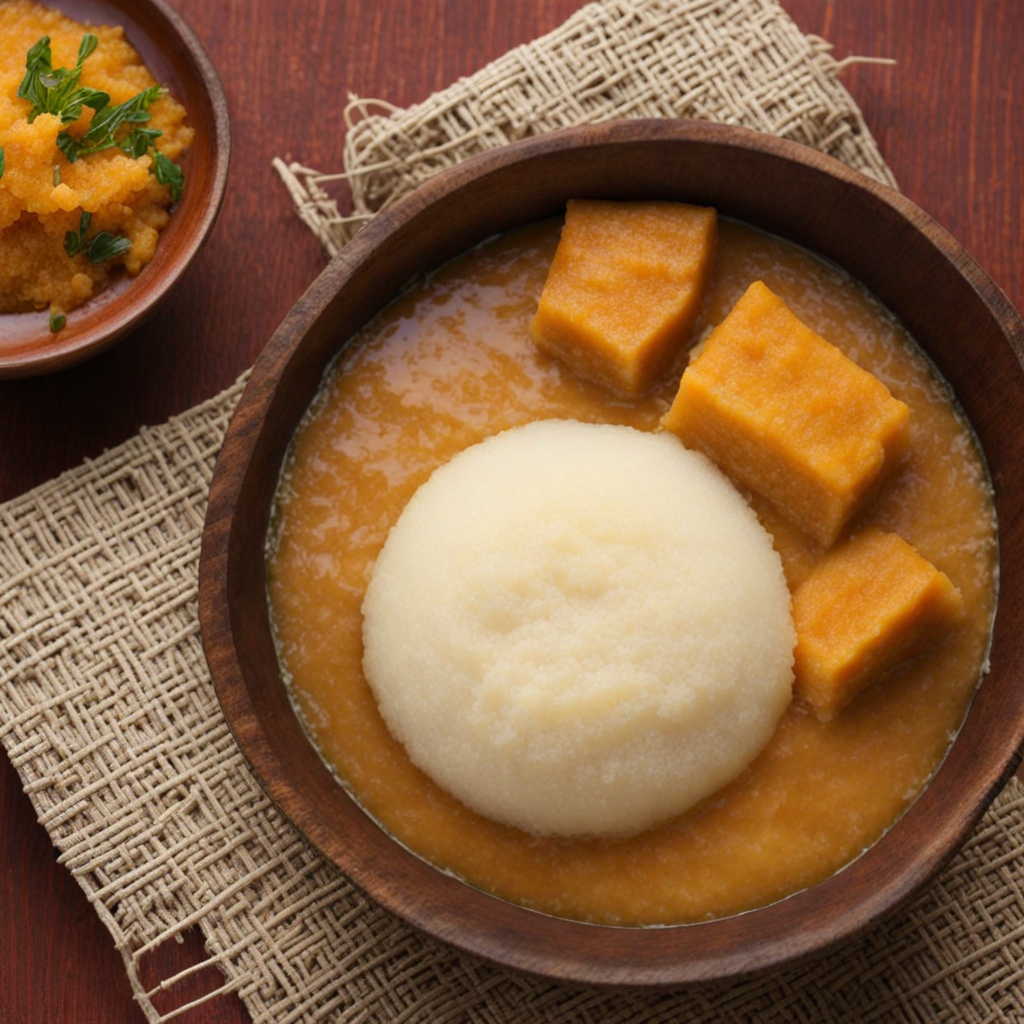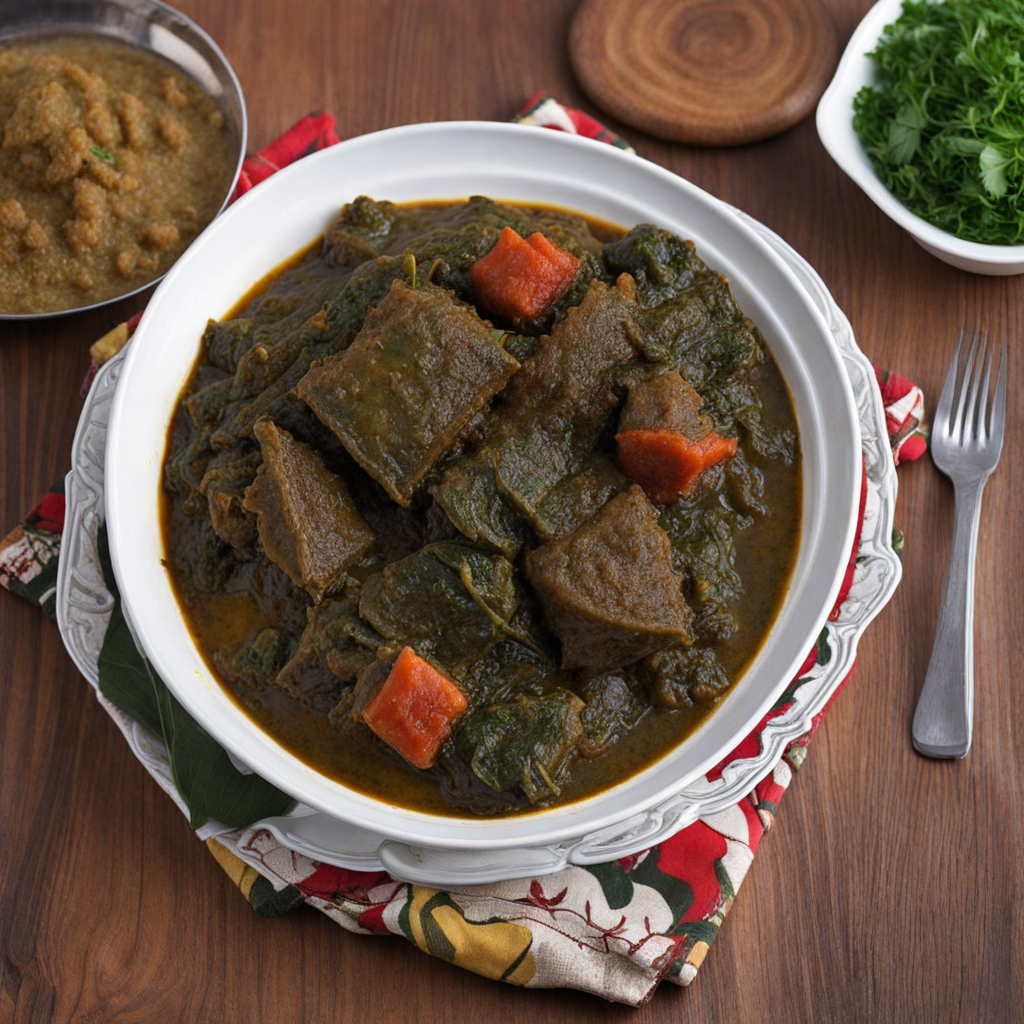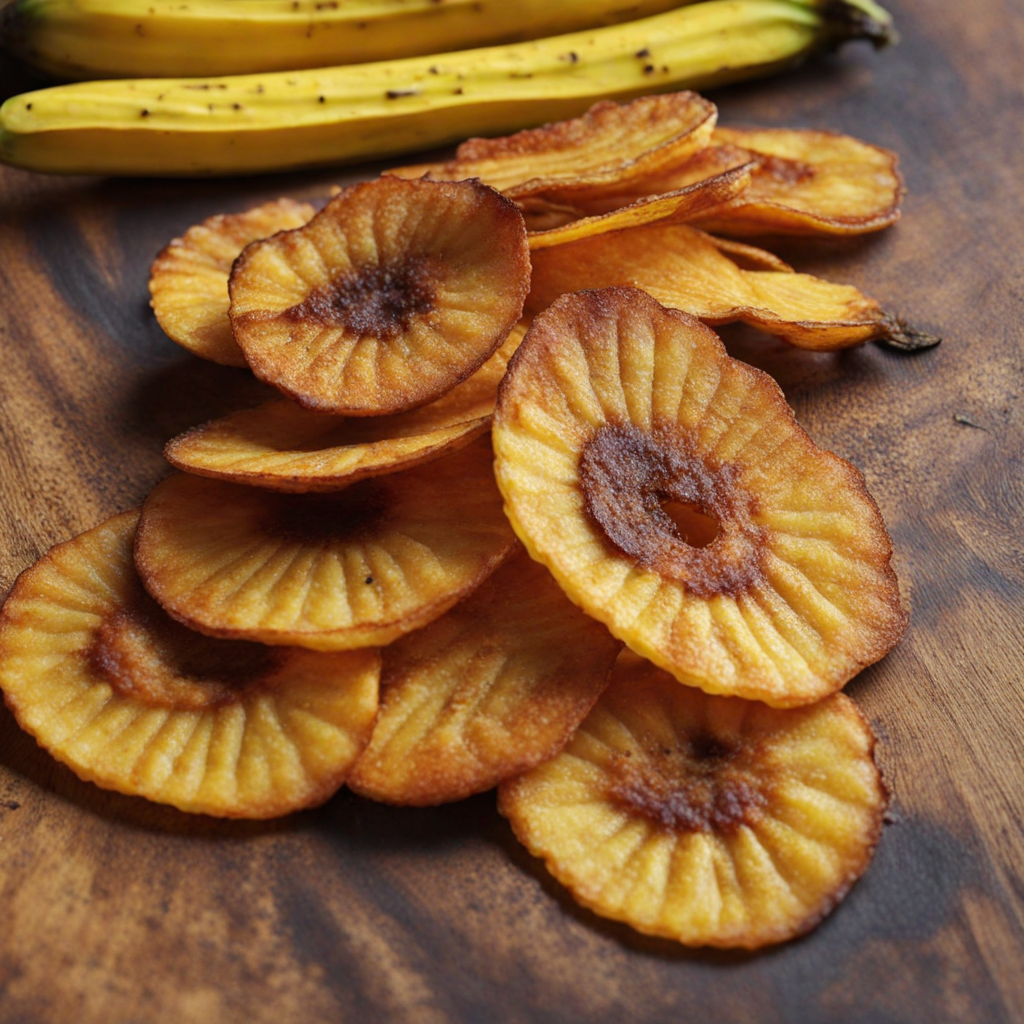Kwanga
Kwanga is a traditional staple food from Gabon, made primarily from cassava, a root vegetable that is rich in carbohydrates. The preparation of kwanga involves peeling, grating, and fermenting the cassava, which is then molded into a cylindrical shape and wrapped in banana leaves. This fermentation process not only enhances the flavor but also gives kwanga its distinctive sour note. The texture is chewy and dense, making it a hearty accompaniment to various dishes. Its unique flavor profile offers a delightful contrast when paired with savory stews or grilled meats, allowing it to shine as a versatile side dish in Gabonese cuisine. One of the most exciting aspects of kwanga is its ability to absorb the flavors of the dishes it accompanies. It is often served alongside rich sauces, such as those made with fish, meat, or vegetables, which deeply infuse the kwanga with their savory essence. The dish is typically enjoyed with the hands, where pieces of kwanga are torn off and dipped into the sauce, creating a communal dining experience that is central to Gabonese culture. This method of eating not only connects diners to their food but also fosters a sense of togetherness during meals. Kwanga is more than just a side dish; it is a reflection of Gabonese culinary traditions and the importance of cassava in the region's diet. The dish is often enjoyed during family gatherings and celebrations, making it a symbol of hospitality and community. For those seeking to explore new tastes, kwanga offers a unique combination of texture and flavor that is both satisfying and memorable. Whether enjoyed with traditional sauces or as part of a modern fusion meal, kwanga is sure to leave a lasting impression on any food enthusiast.
How It Became This Dish
Kwanga: A Culinary Journey Through Gabon Kwanga, a staple food in Gabon, is a fascinating testament to the rich cultural heritage and agricultural practices of the region. This traditional dish, made primarily from cassava, embodies the essence of Gabonese cuisine and is deeply intertwined with the nation's identity, history, and social customs. #### Origins of Kwanga The roots of kwanga can be traced back to the indigenous peoples of Central Africa, particularly the Bantu-speaking communities, who have cultivated cassava (Manihot esculenta) for centuries. This tuber, native to South America, was brought to Africa by Portuguese traders in the 16th century. Soon after its introduction, cassava became a vital part of the diet across various African nations, including Gabon. The crop thrived in Gabon's tropical climate, requiring minimal agricultural input and yielding a reliable source of sustenance. Kwanga is prepared by fermenting and then processing cassava into a dough-like consistency. The fermentation process not only enhances the flavor but also reduces the toxicity of raw cassava, which contains cyanogenic glycosides. This careful preparation is a reflection of the knowledge and skills passed down through generations, showcasing the ingenuity of Gabonese people in utilizing available resources. #### Cultural Significance Kwanga holds significant cultural importance in Gabonese society. It is more than just a food item; it is a symbol of community, tradition, and resilience. Traditionally, kwanga is served during communal meals, family gatherings, and celebrations such as weddings and funerals. The act of preparing kwanga is often a communal affair, involving family members and neighbors who come together to peel, grate, ferment, and cook the cassava. This process not only fosters social bonds but also reinforces cultural identity and heritage. In Gabon, kwanga is often accompanied by a variety of sauces, stews, and grilled meats, creating a hearty and satisfying meal. Popular side dishes include fish, chicken, and vegetable stews, which enhance the flavor profile of this starchy staple. The versatility of kwanga allows it to complement various dishes, making it a beloved component of the Gabonese diet. Kwanga is also associated with the traditional practices of the Fang and other ethnic groups in Gabon. For these communities, food is imbued with spiritual significance, and kwanga is no exception. It is often present during rituals and ceremonies, symbolizing abundance and communal sharing. Offering kwanga to guests is a gesture of hospitality, reflecting the values of generosity and togetherness that are central to Gabonese culture. #### Development Over Time As Gabon has evolved, so too has the significance and preparation of kwanga. In the past, the production of kwanga was primarily a domestic activity, with families relying on their own resources. However, as urbanization and globalization have taken hold, the landscape of kwanga production has changed. Today, kwanga can be found in markets across Gabon, sold by local vendors who have turned the preparation of this staple into a small-scale business. The rise of kwanga's commercial production has led to the development of various forms and variations of the dish. While traditional kwanga is still made using age-old methods, modern techniques and technologies have emerged. For instance, some producers now use electric grinders and machines to speed up the process of preparing cassava, while others have experimented with different flavorings and ingredients. Despite these changes, the essence of kwanga remains intact. The dish continues to be a vital part of Gabonese identity, serving as a reminder of the resilience and resourcefulness of the people. Its enduring popularity reflects a deep-seated connection to cultural roots, even as the country embraces modernization. #### Kwanga in Contemporary Gabon In contemporary Gabon, kwanga has gained recognition beyond local borders, becoming a symbol of Gabonese cuisine in the global culinary landscape. As Gabonese diaspora communities grow around the world, kwanga is often featured in cultural events and festivals, showcasing the vibrancy of Gabonese heritage to a broader audience. Chefs and food enthusiasts have begun to explore traditional recipes and present them in innovative ways, bridging the gap between tradition and modern culinary practices. Moreover, there is a growing awareness of the nutritional value of cassava and its potential as a food security crop in the face of global challenges. With the increasing focus on sustainable agriculture and local food systems, kwanga stands as a testament to the resilience of traditional food practices. Many organizations and initiatives are working to promote the cultivation of cassava and the production of kwanga, recognizing its potential to provide sustenance for communities in Gabon and beyond. #### Conclusion Kwanga is more than just a dish; it is a cultural artifact that tells the story of Gabon's history, traditions, and social fabric. From its origins in indigenous agricultural practices to its role in modern Gabonese society, kwanga has evolved while remaining a vital part of the nation's identity. As the world continues to globalize, kwanga serves as a reminder of the importance of preserving culinary heritage and celebrating the rich tapestry of flavors and traditions that shape our collective identity. In a world where food often acts as a bridge between cultures, kwanga stands out as a delicious symbol of Gabon's enduring spirit, resilience, and shared humanity. Its journey from a simple cassava preparation to a beloved national dish encapsulates the essence of Gabonese culture—a celebration of community, tradition, and the power of food to unite people across generations.
You may like
Discover local flavors from Gabon







